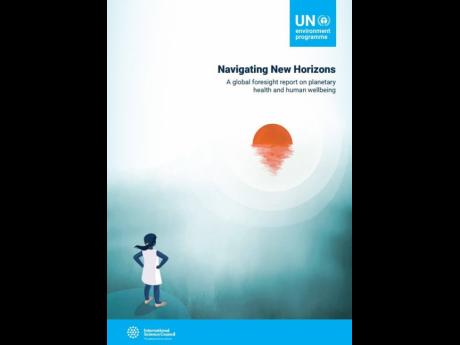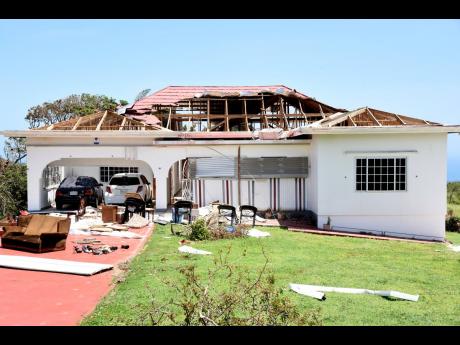Earth Today | Getting ahead of polycrisis
Report warns of need for comprehensive approach to solving planetary woes
AS THE world aches from climate change, pollution and nature loss, and struggles with territorial conflicts and deteriorating health, it is necessary to create buffers in global systems of finance and trade, improve social safety nets and rebuild trust.
This is a suggestion from a new report of the United Nations Environment Programme (UNEP) and the International Science Council (ISC) titled Navigating New Horizons: A global report on planetary health and human well-being.
“In an interconnected world, a local crisis seldom remains local for long. Territorial conflicts overspill; migration spreads; resource pressures increase. We see it in the triple planetary crisis of pollution, biodiversity loss and climate change. Each of these three feeds into and aggravates the others. Pollution changes climate patterns. This damages ecosystems. Damaged ecosystems fail to filter water and absorb emissions. Thus, the cycle continues, worsens and widens, and where reversed improvements are observed,” the report explained.
“Start to factor in how this impacts humanity – and the feedback loops which result against a backdrop of unprecedented convergences between ecological, political and economic strife – the concept polycrisis might come close to reflecting the new global context. A global polycrisis arises from ‘the causal entanglement of crises in multiple global systems in ways that significantly degrade humanity’s prospects’,” it said.
“These interacting events (or crises) occur simultaneously and cause more harm, and surprise, than the sum of those crises would produce in isolation. This is now a feature of the times. As such, the multiplying crises need to be understood as a whole and addressed as a whole,” the report said further.
The necessary response, according to the report, is to recognise what is at stake and then respond using similarly compounded solutions.
“This will mean restoring the resilience of complex systems so that they are less vulnerable to shocks, for example, by investing in nature … . It will also mean guiding the evolution and uptake of innovations such as artificial intelligence (AI), so that their extraordinary transformative potential contributes to human well-being and planetary health. In practice, that is likely to necessitate a combination of anticipatory and adaptive governance, supported by foresight and monitoring,” the UNEP-ISC report noted.
“… It will mean recognising that the causal entanglement of systems offers the possibility to move from polycrisis to multiple equilibria. It means that actions to increase resilience and mitigate risks in one system are likely to have positive implications elsewhere, for example, by reducing harmful feedback loops and preventing the contagion of disruptions across multiple systems,” it added.
At the same time, the report warned that also required is for governments and international organisations to “adopt a broad, whole-system perspective, which seeks to understand the interactions between crises and the architectures that link systems globally”.
“When those connections are understood, it becomes possible to design interventions that reduce fragility and create a foundation for genuinely sustainable development,” it said.
And the time to act is now, given the escalating rate of change.
RAPID CHANGE
“The speed of change is staggering. Social norms, employment, leisure and our relationship with nature are all inexorably shifting. The rapid development of new technologies and artificial intelligence are influencing all facets of life,” the report cautioned.
“Overlapping and interrelated factors will influence the environment. These include competition for natural resources, new forms of conflict, mass forced displacement and migration, persistent widening inequalities, declining trust and weakened institutions, the prevalence of mis/disinformation and an increasing global multipolarity,” noted the 2024 report.
Still, the report insists, “there are signs of hope”. These include “the unprecedented expansion of renewables projected to overtake coal to become the largest source of global electricity generation by 2025; a new Global Biodiversity Framework; the ozone layer on track for full recovery; and the adoption of the so-called ‘high seas treaty’ now protecting two-thirds of the ocean beyond national jurisdictions”.
“On the eve of the Summit of the Future, all eyes are on the international community – amidst a backdrop of global tension. One question looms large: can we summon up a better future for the planet and people, with peace and prosperity for all?” the report added.
The summit is set for September 22-23 in New York and is intended to provide the space for reaffirming existing commitments to the Sustainable Development Goals, and the United Nations Charter, as well as to “a reinvigorated multilateral system better positioned to impact people’s lives positively”.


